
ENVIRONMENTAL ENGINEERING SCIENCE
Scope & Guideline
Advancing sustainable solutions for a cleaner planet.
Introduction
Aims and Scopes
- Water Treatment and Quality Improvement:
Research on innovative technologies and methods for treating water, including advanced filtration, chemical treatment, and biological processes to remove contaminants and improve water quality. - Waste Management and Resource Recovery:
Studies targeting the efficient management of waste materials, including recycling, composting, and recovery of valuable resources from waste streams. - Pollution Control and Remediation Technologies:
Development and evaluation of technologies for controlling environmental pollutants, including air, water, and soil remediation techniques. - Sustainable Environmental Practices:
Promotion of sustainability through research on renewable energy, green engineering practices, and the integration of environmental considerations into engineering solutions. - Microbial and Chemical Processes in Environmental Systems:
Investigation of microbial communities and chemical interactions that affect the behavior of pollutants in natural and engineered systems. - Climate Change Mitigation and Adaptation:
Research addressing the impacts of climate change on environmental systems and proposing engineering solutions to mitigate these effects.
Trending and Emerging
- Microplastics Research:
An increasing number of studies are exploring the prevalence, impacts, and remediation strategies for microplastics in various environmental matrices, reflecting growing public and scientific concern. - Green and Sustainable Engineering Practices:
There is a significant trend towards research that emphasizes sustainability, including the development of eco-friendly materials, processes, and technologies that minimize environmental impacts. - Climate Resilience and Adaptation Strategies:
Emerging research focuses on engineering solutions that enhance resilience to climate change, including infrastructure adaptations and sustainable land use planning. - Advanced Material Development for Environmental Applications:
Research on novel materials such as biochar, nanomaterials, and composite materials is gaining traction, particularly for their applications in pollution control and resource recovery. - Data-Driven Environmental Management:
The integration of machine learning and artificial intelligence in environmental monitoring and management is emerging as a key theme, enabling more efficient data analysis and decision-making.
Declining or Waning
- Traditional Wastewater Treatment Methods:
There has been a noticeable decline in papers focusing on conventional wastewater treatment techniques, as researchers shift towards more innovative, sustainable methods that incorporate advanced technologies and biological processes. - Heavy Metal Removal Techniques:
Research on traditional heavy metal removal methods is becoming less prominent, possibly due to the rise of newer remediation technologies and materials that offer more efficient and effective solutions. - Single-Use Plastics and Packaging Waste:
While still relevant, the specific focus on single-use plastics as a standalone topic has waned, as the discourse has shifted to broader themes of circular economy and comprehensive waste management strategies.
Similar Journals

Asian Journal of Water Environment and Pollution
Championing global perspectives on water and pollution.Asian Journal of Water Environment and Pollution is a leading academic journal published by IOS PRESS, dedicated to advancing the field of water science and technology, as well as pollution management. With its ISSN 0972-9860 and E-ISSN 1875-8568, this journal serves as a pivotal platform for researchers, professionals, and academics alike who are keen to explore innovative solutions and interdisciplinary approaches toward water-related challenges and environmental issues. Although currently positioned in the Q4 category for both pollution and water science & technology, the journal aims to foster impactful research and discussions that can enhance the understanding and treatment of water pollution. The Asian Journal of Water Environment and Pollution not only plays a crucial role in disseminating knowledge but also encourages the sharing of findings from unique geographic perspectives, particularly from Asia. As the field evolves, this journal is poised to become a vital resource for those looking to contribute to sustainable water management practices and pollution reduction strategies.
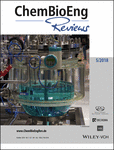
ChemBioEng Reviews
Connecting Academia and Industry in Bioengineering AdvancesChemBioEng Reviews is a premier academic journal dedicated to advancing the fields of biochemistry, bioengineering, and chemical engineering. Published by WILEY-V C H VERLAG GMBH, this journal serves as an essential platform for researchers and professionals seeking to disseminate groundbreaking insights and innovations. With a remarkable impact factor and a solid reputation, it is ranked in the top quartile (Q1) across multiple disciplines, including Biochemistry, Bioengineering, and Industrial and Manufacturing Engineering. The journal's comprehensive scope covers the synthesis, analysis, and application of bioengineered solutions, making it a vital resource for anyone involved in process chemistry and technology. With an unwavering commitment to high-quality scientific discourse from 2014 to 2024, ChemBioEng Reviews is not only pivotal for the academic community but also contributes to industry advancements in filtration, separation processes, and the intersection of chemical and biological engineering.
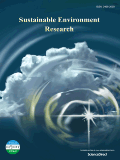
Sustainable Environment Research
Fostering knowledge for a sustainable future.Sustainable Environment Research, an esteemed journal published by BMC, serves as a pivotal platform for disseminating innovative research in the fields of Environmental Engineering, Pollution, and Renewable Energy. Established in 2016 as an Open Access journal, it facilitates the widespread sharing of knowledge and advancements across the globe, reflecting its commitment to enhancing environmental sustainability. With an impressive Q1 ranking in multiple categories, including Water Science and Technology and Pollution, the journal is recognized for its significant impact, currently holding a rank of 31st in Environmental Science - Water Science and Technology. The journal actively invites researchers, professionals, and students to contribute to crucial discussions around sustainable practices and technologies, thus addressing worldwide environmental challenges. Based in Taiwan but accessible internationally, Sustainable Environment Research provides a valuable resource for those dedicated to advancing the science of sustainability.
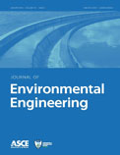
JOURNAL OF ENVIRONMENTAL ENGINEERING
Pioneering research at the intersection of engineering and ecology.JOURNAL OF ENVIRONMENTAL ENGINEERING, published by the American Society of Civil Engineers (ASCE), stands as a pivotal platform within the realm of environmental engineering and civil infrastructure. With an ISSN of 0733-9372 and an E-ISSN of 1943-7870, this esteemed journal has been delivering high-quality research since its inception in 1973 and continues to play a crucial role in advancing knowledge through to 2024. The journal boasts respectable impact factors, achieving Q2 rankings in Civil and Structural Engineering, Environmental Engineering, and Environmental Science, while also maintaining a solid presence in Environmental Chemistry. With Scopus rankings reflecting a strong competitive advantage across various specializations, it serves as a vital resource for researchers, professionals, and students focused on solving complex environmental challenges. Though not an open-access publication, its rigorous selection process ensures that only high-caliber studies are disseminated, making it an indispensable read for anyone involved in the interdisciplinary fields linking engineering and environmental sustainability. Addressing contemporary issues and shaping future innovations, the JOURNAL OF ENVIRONMENTAL ENGINEERING remains committed to fostering dialogue and disseminating impactful research.

Environmental Engineering Research
Bridging engineering and ecology for a sustainable world.Environmental Engineering Research, published by the Korean Society of Environmental Engineers (KSEE), stands as a pivotal journal in the field of environmental engineering. With an ISSN of 1226-1025 and an E-ISSN of 2005-968X, this esteemed journal has shown remarkable growth since its inception, converging years from 2011 to 2024. The journal is recognized in the Scopus ranking system, holding a position of #46 out of 197 in the Environmental Science category, marking it in the 76th percentile—a testament to its impact and significance in the field. Furthermore, it enjoys a commendable Q2 ranking in Environmental Engineering for 2023. While the journal operates under a traditional access model, its commitment to disseminating vital research and innovative solutions for environmental challenges enhances its appeal to researchers, professionals, and students alike. The Environmental Engineering Research journal invites contributions that advance the understanding and application of engineering principles to environmental issues, providing a forum for scholars dedicated to fostering sustainability and environmental protection.
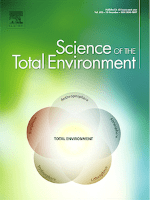
Science of The Total Environment
Fostering a Deeper Understanding of Our Total EnvironmentScience of The Total Environment, an esteemed journal published by Elsevier, holds a significant position in the field of environmental science, encompassing critical areas such as Environmental Chemistry, Environmental Engineering, Pollution, and Waste Management and Disposal. With an impressive impact factor and ranked in the Q1 quartile across its categories for 2023, the journal is recognized for its high-quality research output and contribution to environmental sustainability. Operating from its base in the Netherlands, the journal has been a valuable resource since its inception in 1972, welcoming innovative studies that address complex environmental challenges. Its notable rankings—such as Rank #9 in both Environmental Sciences and Pollution—underscore its relevance and influence in the academic community. Although the journal currently does not provide an open access option, the robust findings and discussions presented within its pages continue to foster a deeper understanding of environmental issues. Science of The Total Environment is an essential platform for researchers, professionals, and students dedicated to advancing knowledge and solutions in the rapidly evolving field of environmental science.
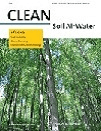
CLEAN-Soil Air Water
Innovating Research for Cleaner Soil, Air, and WaterCLEAN-Soil Air Water, an esteemed journal published by Wiley, serves as a vital platform for disseminating research in the fields of environmental chemistry, pollution, and water science and technology. Operating under an Open Access model, it embraces the principles of knowledge sharing, making significant research findings readily accessible to a global audience. With an ISSN of 1863-0650 and an E-ISSN of 1863-0669, the journal has demonstrated its importance in the academic community, reflected in its Scopus rankings within the top quartiles of its categories. Established in 2007 and continuing through to 2024, CLEAN-Soil Air Water offers researchers, professionals, and students an opportunity to explore innovative studies that address pressing environmental challenges, facilitating an exchange of novel ideas and techniques essential for sustainable development. With a publication footprint in Germany and a growing international reputation, this journal is an invaluable resource for those dedicated to advancing the science and practices of environmental stewardship.

Global NEST Journal
Empowering practitioners through cutting-edge environmental insights.Global NEST Journal, published by the GLOBAL NETWORK ENVIRONMENTAL SCIENCE & TECHNOLOGY, stands as a vital resource for researchers and practitioners in the field of environmental science. With its established trajectory since 2001 and a current category quartile ranking of Q3 in Environmental Science (miscellaneous), this journal serves as an important platform for disseminating innovative research and insights that address pressing global environmental challenges. Based in Athens, Greece, the journal is accessible to a wide audience, facilitating collaboration and knowledge sharing across disciplines. Despite its open access status being unspecified, the Global NEST Journal aims to enrich the academic community by publishing original research articles, reviews, and case studies on various aspects of environmental science and technology. By fostering a deeper understanding of complex environmental issues, this journal not only enhances academic discourse but also contributes to practical solutions for a sustainable future.
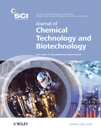
JOURNAL OF CHEMICAL TECHNOLOGY AND BIOTECHNOLOGY
Advancing the Frontiers of Chemical Engineering and BiotechnologyJOURNAL OF CHEMICAL TECHNOLOGY AND BIOTECHNOLOGY, published by WILEY in the United Kingdom, serves as a premier platform for research at the interface of chemical engineering and biotechnology. With an ISSN of 0268-2575 and E-ISSN 1097-4660, this journal has established itself as a crucial resource for scholars and professionals, evidenced by its impactful categorization in the Q1 and Q2 quartiles across multiple domains such as Inorganic Chemistry, Biotechnology, and Renewable Energy. The journal encompasses a broad scope that includes innovative research on sustainable technologies, pollution management, and advances in chemical syntheses, making it essential for those pursuing cutting-edge developments in these disciplines. Researchers and practitioners benefit from its comprehensive coverage, as it includes insightful articles, reviews, and case studies that collectively push the boundaries of contemporary science and engineering. With a ranking of Q2 in its various categories and significant percentiles in key fields, the journal stands as a beacon for high-quality scholarship, eligible for impact in both academia and industry.
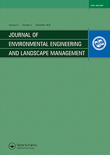
Journal of Environmental Engineering and Landscape Management
Empowering Research for Environmental ExcellenceJournal of Environmental Engineering and Landscape Management, published by VILNIUS GEDIMINAS TECH UNIV, serves as a pivotal platform for disseminating innovative research in the fields of environmental engineering and landscape management. With an Open Access policy since 2018, this journal fosters global knowledge exchange and accessibility, enhancing collaboration among researchers, professionals, and students alike. The journal, indexed under ISSN 1648-6897 and E-ISSN 1822-4199, features a diverse range of topics covering environmental engineering, management policies, and conservation strategies, thus contributing to sustainable development practices. As of 2023, it holds a Q3 quartile ranking across multiple categories, including Environmental Engineering and Nature and Landscape Conservation, demonstrating its commitment to excellence amidst competitive academic fields. The journal spans from 2004 to 2024, steadily solidifying its influence and relevance in shaping environmental discourse and practices. Join a vibrant community of scholars dedicated to addressing pressing environmental challenges through this distinguished publication.